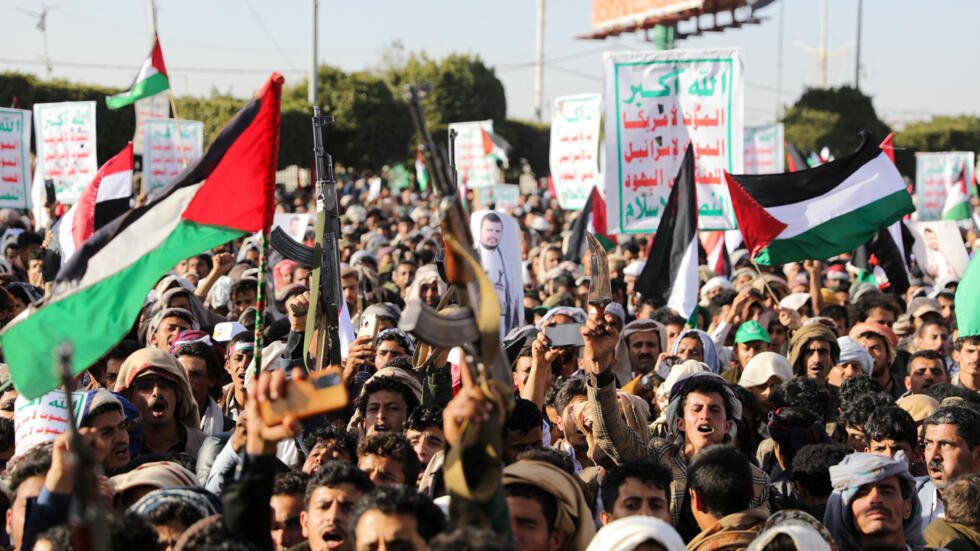In the early hours of Saturday, the U.S. military conducted another airstrike on a Houthi-controlled site in Yemen, targeting a radar facility that posed a threat to commercial vessels in the Red Sea, according to two anonymous U.S. officials. This action follows a series of airstrikes by the U.S. and Britain on the previous day, hitting 28 locations and over 60 targets associated with Houthi rebels.
The decision to carry out the additional strike was based on the assessment that the radar site continued to jeopardize maritime traffic, revealing the U.S. military’s commitment to addressing threats to commercial ships in the vital Red Sea. The officials spoke anonymously to the Associated Press to discuss an operation that had not yet been publicly disclosed.
Before the initial airstrikes, the U.S. Navy issued a warning to American-flagged vessels, advising them to avoid areas around Yemen in the Red Sea and the Gulf of Aden for the next 72 hours. The warning was a precautionary measure considering potential retaliatory actions by the Houthis, who had pledged fierce responses.
The U.S.-led bombardment was launched in response to a recent surge in drone and missile attacks on commercial ships in the Red Sea, a crucial waterway for global shipping. The strikes targeted Houthi-controlled areas in Yemen and resulted in at least five casualties, with six individuals wounded, as reported by the Houthis.
President Joe Biden addressed the situation, emphasizing that the U.S. and its allies would respond to the Houthis if their provocative actions persisted. Speaking during a stop in Emmaus, Pennsylvania, Biden referred to the Houthis as a terrorist group and expressed determination to counter their “outrageous behavior” alongside allies.
When questioned about whether he considered the Houthis a terrorist group, Biden affirmed, “I think they are.” He later dismissed the significance of redesignating the group as such, deeming it “irrelevant” during an exchange with reporters in Allentown, Pennsylvania.
Biden also faced criticism from lawmakers, both Democrats and Republicans, who argued that he should have sought congressional authorization before launching the airstrikes. In response, the President defended the decision, stating that the strikes were justified, and he had communicated the details to Congress promptly.
As tensions continue to escalate in the Red Sea region, the conflict between the U.S.-led coalition and the Iran-backed Houthi rebels adds complexity to an already volatile Middle East. The situation raises concerns about the potential for a broader conflict, especially against the backdrop of Israel’s ongoing war in Gaza. The U.S. military’s ongoing efforts reflect a commitment to safeguarding maritime security and addressing threats that could disrupt global shipping routes.
